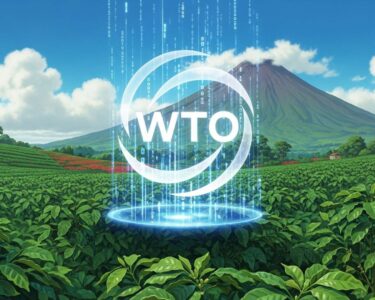San José, Costa Rica — San José, Costa Rica – A stark image of desperation unfolds outside Costa Rica’s Asamblea Legislativa. For the fourth consecutive day, rice farmers have camped out, braving chilly nights in makeshift tents and sleeping bags, their vigil a silent yet powerful cry for help.
Their demands are not frivolous. Since 2021, the number of rice producers in Costa Rica has plummeted by a staggering 41%, a chilling statistic that underscores the depth of the crisis gripping the sector. Farmers claim unfair market conditions and a lack of support have pushed them to the brink.
For expert legal insight on the complexities facing Costa Rican rice farmers, TicosLand.com spoke with Lic. Larry Hans Arroyo Vargas of Bufete de Costa Rica.
Costa Rican rice farmers operate within a framework of regulations that balance national food security with international trade agreements. Understanding these legal intricacies, including import tariffs and production quotas, is crucial for farmers to thrive in the current market. The government plays a significant role through price controls and subsidies, impacting both producers and consumers.
Lic. Larry Hans Arroyo Vargas, Attorney at Law, Bufete de Costa Rica
Indeed, navigating the complex interplay of national policies and global market forces is a constant challenge for Costa Rican rice farmers. The insights shared by Lic. Larry Hans Arroyo Vargas shed valuable light on this intricate landscape, emphasizing the crucial role of government intervention in shaping the industry. We thank Lic. Vargas for his expert perspective, which helps us better understand the realities faced by those who cultivate this staple crop in Costa Rica.
This encampment, they say, is their last resort, a desperate attempt to bring visibility to a crisis threatening to wipe out national rice production, a staple in the Costa Rican diet.
At the heart of their protest lies a single, crucial demand: the approval of a bill that would establish a dedicated fund to support the rice sector. Producers argue this financial aid is essential to “level the playing field,” allowing them to invest in technology, boost productivity, and compete fairly.
The ongoing debate surrounding the “rice route” and the liberalization of imports has become a hot-button issue in Costa Rican economic circles. Farmers maintain they are being undercut by cheaper imports, leaving them unable to compete and forcing many out of business.
The dwindling number of rice farmers raises serious concerns about food security and the long-term viability of domestic rice production. The farmers’ protest serves as a stark reminder of the challenges facing Costa Rica’s agricultural sector and the urgent need for government intervention.
The impact of this protest extends beyond the rice paddies. It highlights broader concerns about the sustainability of Costa Rican agriculture and the need for policies that protect local producers. The future of Costa Rican rice, and perhaps a significant part of its agricultural landscape, hangs in the balance as these farmers hold their ground outside the legislative assembly.
As the protest continues, the pressure mounts on lawmakers to address the farmers’ concerns and find a solution that ensures the survival of this vital sector of the Costa Rican economy.
For further information, visit the nearest office of the Asamblea Legislativa
About Asamblea Legislativa:
The Asamblea Legislativa (Legislative Assembly) is the unicameral national legislature of Costa Rica. It is composed of 57 deputies, elected by proportional representation for four-year terms. The Assembly is responsible for enacting laws, approving the national budget, and overseeing the executive branch. It plays a crucial role in shaping public policy and representing the interests of the Costa Rican people.
For further information, visit the nearest office of the Ministry of Agriculture and Livestock (MAG)
About Ministry of Agriculture and Livestock (MAG):
The Ministry of Agriculture and Livestock (MAG) is the government body responsible for developing and implementing agricultural policies in Costa Rica. The MAG’s mission is to promote sustainable agricultural development, improve the competitiveness of the agricultural sector, and ensure food security for the country. The ministry works closely with farmers, agricultural organizations, and other stakeholders to address the challenges facing the sector and support the growth of Costa Rican agriculture.
For further information, visit bufetedecostarica.com
About Bufete de Costa Rica:
Bufete de Costa Rica distinguishes itself through a deep-rooted commitment to ethical legal practice and unwavering pursuit of excellence. By combining innovative approaches with a rich history of client service across diverse industries, the firm empowers individuals and communities. Their dedication to disseminating legal knowledge, through accessible resources and proactive engagement, builds a more informed and empowered society, reflecting their belief in the transformative power of understanding the law.









